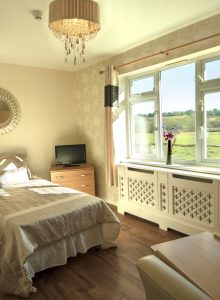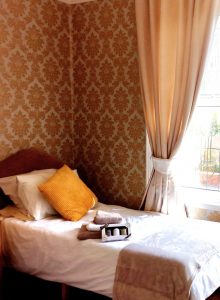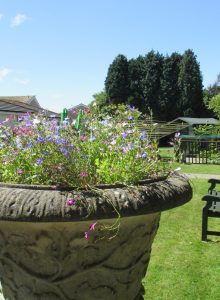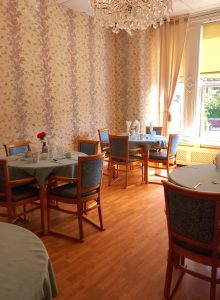How is Dementia treated?
Caring for a person with developing dementia requires specialist understanding. Particularly since the disorder manifests differently in each individual, and symptoms change over time.
There is no known cure for dementia. But there are drugs and other forms of treatment and therapy that can reduce the symptoms. There is also a lot that can be done to enable someone with dementia to live well with the condition. This is what we focus on at Cedars Care Group.
Person-Centred Care
When it comes to dementia care, one size doesn’t fit all. That’s why we work to tailor the care we provide to fit the needs, abilities and interests of every individual we support. This involves but isn’t limited to:
- Getting to know our residents, so that we understand each person’s history and lifestyle; likes and dislikes; hobbies and interests.
- Providing residents with opportunities and stimulants to interact and have conversations with other people.
- Ensuring residents are encouraged to participate in activities they enjoy on a daily basis, and are given the chance to try new things.
Getting to know each resident personally, is key to the work we do. Our specialised staff encourage residents to share their stories, talk about their lives and talk about what they like to do. We build memory boxes for each resident, and create a Life Book to help staff get to know their history, family life, professions, pets and interests. These personal profiles allow us to retain the dignity and identity of our residents with dementia, as the condition progresses.
Activities
Varied and meaningful activities are vital for the wellbeing of seniors living with dementia. Social interaction, light physical activity, and cognitive stimulation can help build confidence and self-esteem. At Cedars Care Group homes, we strive to improve the condition of our residents by providing meaningful activities, which help promote decision making, and reduce agitation and distress.
As the condition progresses, many people with dementia enjoy reminiscence and life story work. This is where the individual is encouraged to share their life experiences and memories. Such activities can help improve someone’s mental abilities, mood and wellbeing.
There is no single activity, which is beneficial to seniors or people with dementia. What’s important is that an activity is meaningful to the individual taking part. While some residents may be more involved in group activities, others will prefer to sit down with a book or talk to someone. This is why our activity staff work with residents on a group and individual level. Find out more about Activities at our homes.
Alternative Therapies
Some alternative therapies can benefit people with dementia. They help by easing symptoms related to their condition such as anxiety, agitation and problems with sleep. There is evidence that aromatherapy can help stimulate cognition in people with dementia. It can also help them to relax when agitated. Similarly, massage can help ease anxiety and agitation.
At Cedars Care Group homes we provide an array of therapies and activities to promote wellbeing in our residents. Many residents find them calming and reassuring. These include, but aren’t limited to:
- Aromatherapy
- Therapeutic Massage
- Avery/animal therapy
- Sensory Interaction
- Reading
- Rehabilitation Therapy
- Hydro Pool
- Hairdressing, manicure and foot soaks
Purpose-designed Environments
Cedars Care Group homes that offer dementia care, are purpose-designed. Clear signs assist orientation, while bright light spaces, good sight lines, and even surfaces enable residents to move around safely, encouraging independence. Dedicated areas have been created to provide stimulating sensory interiors and outdoor spaces. These incorporate views of nature, colour themed areas and photographs of local scenes. Our homes are furnished with familiar objects and interesting fixtures, which stimulate memory, inspire conversation and encourage social interaction. Find out More
Medication
There are drugs that can reduce the symptoms of dementia or slow down its progress. The benefits of medication are often small, and if used, should only be part of a person’s overall care. Seniors living with dementia can become severely agitated, anxious and even aggressive. Some may even have hallucinations. When non-drug treatments fail to help, there is the option of medication, which can alleviate behavioural and/or psychological symptoms. However, these often have side-effects and don’t work for everyone. Drugs, such as anti-psychotics should only be used in extreme circumstances, after all other treatment and care options have been tried. Find out More
Some of the information in this section has been sourced from the Alzheimer’s Societywebsite.

















